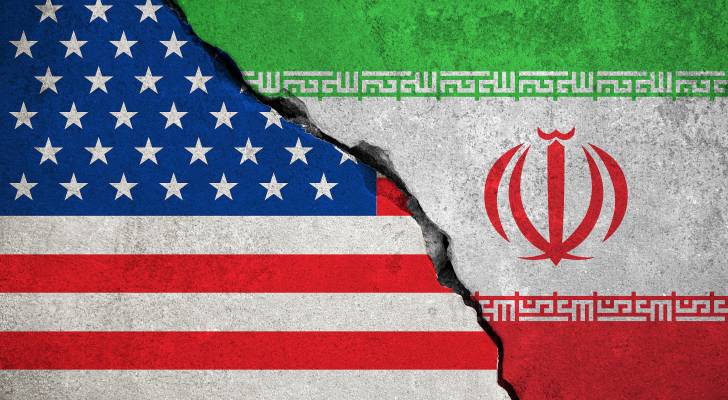United States (left) and Iranian (right) flags (Credit: Adobe Stock)
US submits new nuclear deal proposal to Iran
The US has officially presented Iran with a fresh proposal for a nuclear agreement, the White House confirmed on Saturday, signaling renewed efforts to curb Tehran’s nuclear ambitions.
Iranian Foreign Minister Abbas Araghchi disclosed that he received "elements of a US deal" during a brief visit from Omani Foreign Minister Badr Albusaidi to Tehran. The move comes as international concern grows over Iran’s accelerated production of enriched uranium, according to a recent report by the UN’s nuclear watchdog, the International Atomic Energy Agency (IAEA).
Read more: Iran slams 'Israel' for supplying "false data" on nuclear findings
White House Press Secretary Karoline Leavitt emphasized the urgency of the situation, stating it is in Iran's "best interest to accept" the deal. She added, "President Trump has made it clear that Iran can never obtain a nuclear bomb." Leavitt also noted that US President Donald Trump’s special envoy, Steve Witkoff, had delivered a "detailed and acceptable" proposal to Iranian officials.
Responding on social media, Araghchi said the US offer "will be appropriately responded to in line with the principles, national interests and rights of the people of Iran." However, the full details of the proposal remain undisclosed.
The announcement follows a significant report from the IAEA, revealing that Iran has increased its stockpile of uranium enriched to 60 percent purity—close to the 90 percent level required for weapons-grade material. Iran now holds more than 400kg of uranium at this level, a quantity that could theoretically be refined further to produce around ten nuclear weapons.
This development marks Iran as the only non-nuclear-armed country enriching uranium to such a high degree, far exceeding the enrichment levels needed for civilian purposes like power generation and medical research.
The report has intensified calls from the US, Britain, France, and Germany for the IAEA’s board of governors to officially declare Iran in violation of its non-proliferation commitments.
Read more: Netanyahu: Iran is totally determined to build nuclear weapons
Iran, however, maintains that its nuclear program is strictly peaceful. Iranian state media dismissed the IAEA report as "politically motivated" and full of "baseless accusations." Tehran has warned it will take "appropriate measures" if any punitive action is pursued against it during the upcoming IAEA governors’ meeting.
Since April, Oman has mediated indirect talks between Washington and Tehran aimed at reviving a nuclear accord, with both sides expressing cautious optimism despite persistent disagreements. A central sticking point remains Iran’s right to continue uranium enrichment under any future deal.
Despite diplomatic efforts, the IAEA report shows Iran has not curtailed its nuclear activities, producing highly enriched uranium at a pace equivalent to roughly one nuclear weapon’s worth every month over the past three months.
US intelligence estimates suggest Iran could produce weapons-grade uranium within two weeks if it chose to, and potentially assemble a nuclear bomb within several months.
Although Iran denies any intention to build nuclear weapons, the IAEA has been unable to verify the peaceful nature of its program fully. Iran restricts access for senior inspectors and has not responded to long-standing questions about its nuclear past.
This latest round of negotiations follows President Trump’s 2018 withdrawal from the 2015 Joint Comprehensive Plan of Action (JCPOA), the previous landmark agreement between Iran and six world powers. The JCPOA aimed to restrict Iran’s nuclear activities in exchange for sanctions relief.
Trump criticized the JCPOA as flawed, citing its temporary nature and failure to address Iran’s ballistic missile program, and reimposed stringent sanctions under a "maximum pressure" campaign.
Since then, Iran has gradually breached the JCPOA’s restrictions, heightening fears of a nuclear arms race in the region.
Trump has also warned that military action against Iran’s nuclear facilities remains on the table if diplomatic solutions falter.




